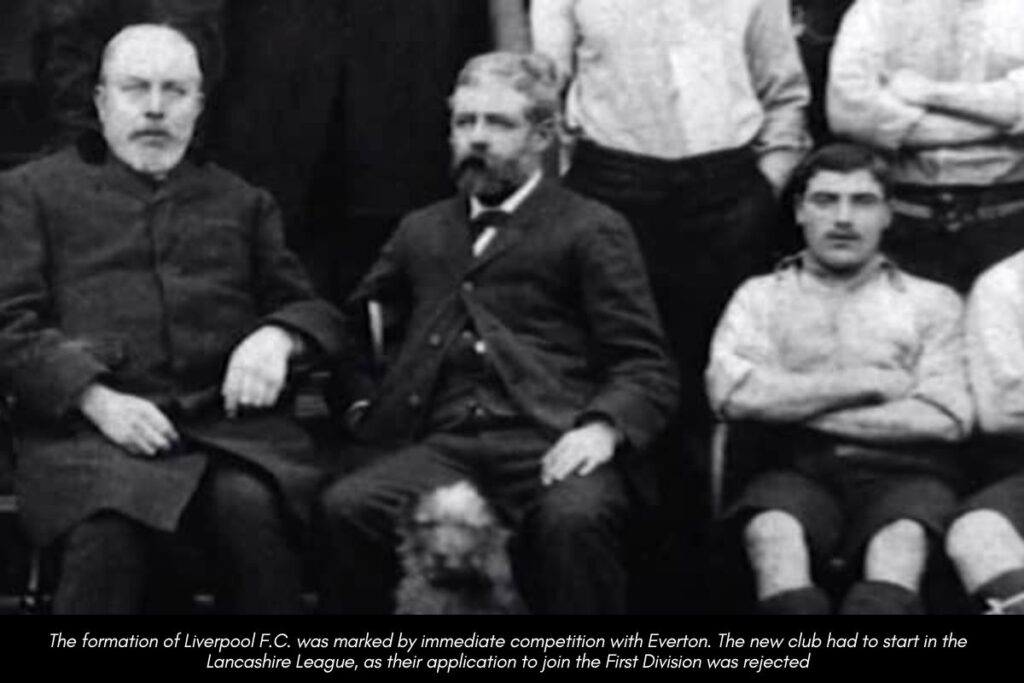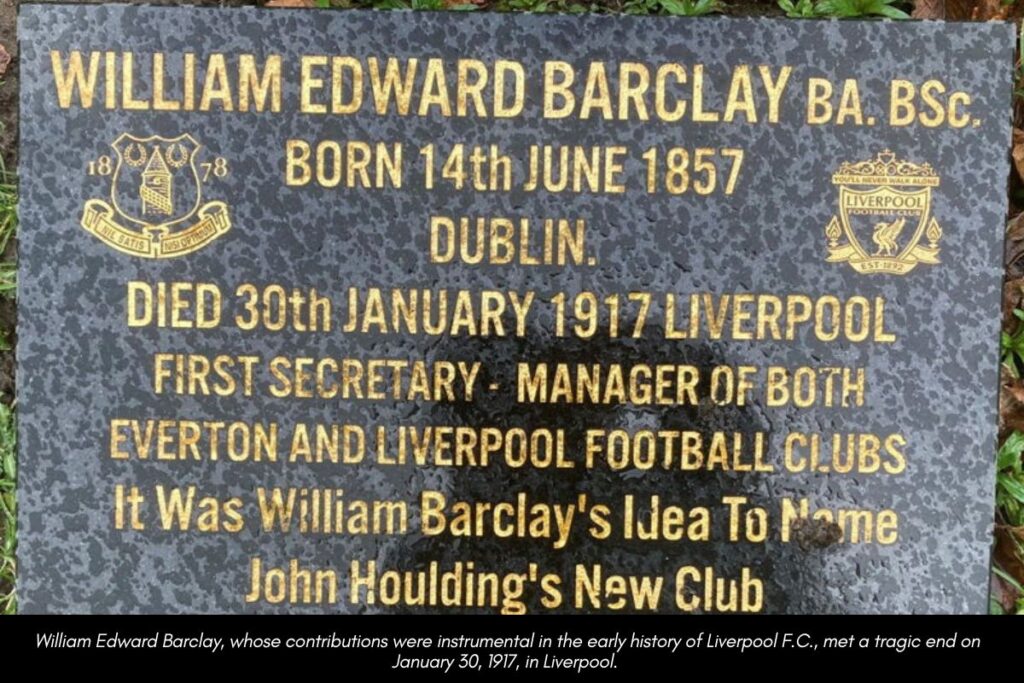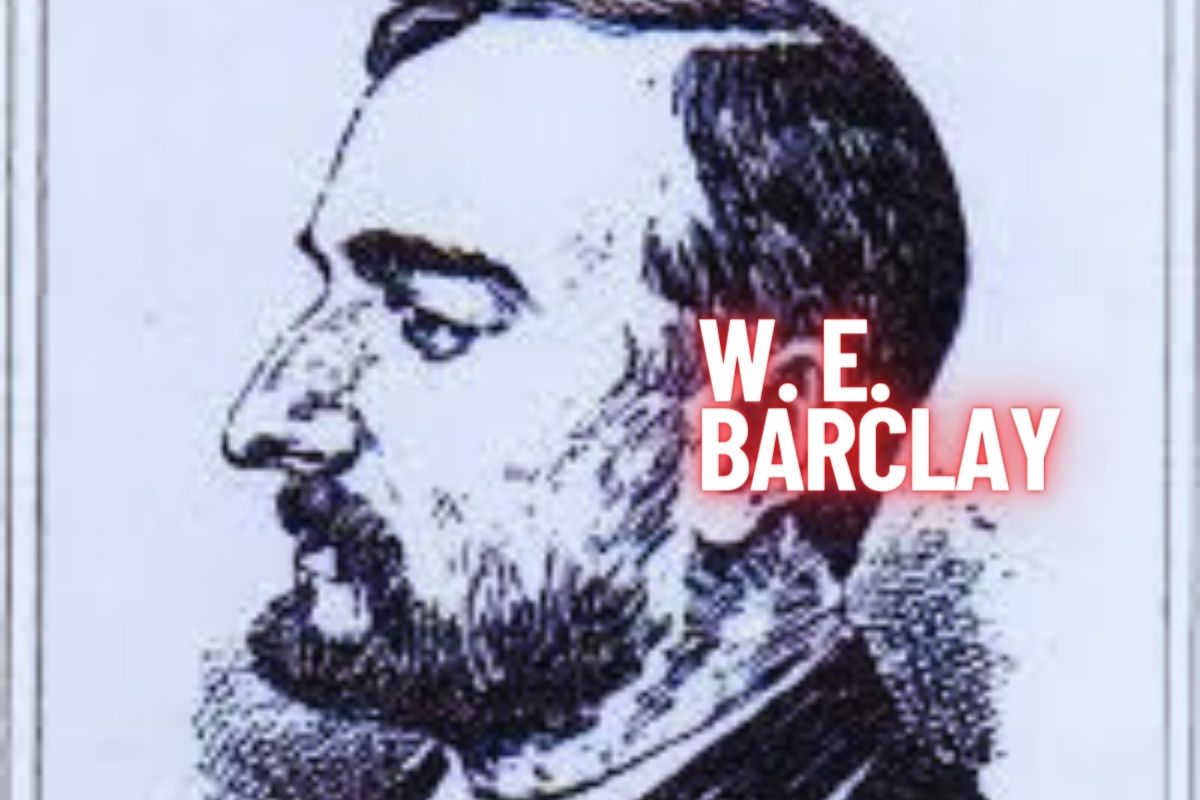William Edward Barclay holds a unique place in football history as the first manager of two football clubs. Barclay initially managed Everton during their formative years, overseeing the team for their first 22 games. When the majority of Everton’s club left Anfield for Goodison Park, Barclay stayed behind to help form what would become Liverpool F.C. His tenure at Liverpool saw both triumphs, such as winning the Second Division championship, and setbacks, including relegation from the First Division. Beyond management, Barclay served multiple terms as Liverpool’s chairman and worked with the Football Association, cementing his legacy as a pioneer in Merseyside football history.
Early Life and Career
William Edward Barclay, born on June 14, 1857, laid the groundwork for a pioneering career in football management. Though specific details of his early life are scarce, his significant contributions began to surface with his appointment as the first manager of Everton F.C. in the late 19th century. His tenure at Everton was brief but impactful, overseeing the team for their first 22 games and playing a vital role in the club’s early development.
A turning point in Merseyside football came when the majority of Everton’s members left Anfield to move to the newly built Goodison Park. Barclay, however, chose to stay at Anfield, joining forces with John Houlding and John McKenna to form a new club, which eventually became Liverpool F.C. This decision marked the beginning of his significant influence on Liverpool’s early history.
William Edward Barclay’s dual roles as manager and club secretary allowed him to shape the fledgling club’s direction and ethos. His strategic insight and leadership were instrumental in Liverpool’s early successes, including winning the Second Division championship in the 1893-94 season. Barclay’s early career thus laid a strong foundation for his lasting impact on football in the region.
The Feud Between Everton and Liverpool
The origins of the intense rivalry between Everton and Liverpool date back to the early 1890s, rooted in a series of complex social, political, and financial disputes. This rift culminated in the formation of Liverpool F.C. in 1892, fundamentally altering the landscape of Merseyside football.
Initially, Everton played their matches at Anfield, a ground owned by local brewer and politician John Houlding. Over time, tensions arose over the rent Everton paid to Houlding for the use of Anfield. However, financial disagreements were just the tip of the iceberg. Underlying these conflicts were deeper cultural and political divisions. Houlding, a prominent figure in the Conservative Party and a member of the Orange Order found himself at odds with other board members who were aligned with Methodist and liberal values. This ideological clash further strained relationships within the club.

The situation reached a breaking point in 1892 during a meeting of Everton’s members, where Houlding received only 18 votes in what amounted to a vote of no confidence. Consequently, he was removed as club president. In the wake of this decision, Houlding, along with loyal supporters like William Edward Barclay, chose to stay at Anfield and establish a new football club, which they named Liverpool F.C.
The formation of Liverpool F.C. was marked by immediate competition with Everton. The new club had to start in the Lancashire League, as their application to join the First Division was rejected. Despite the setback, William Edward Barclay and his colleagues were ambitious and worked diligently to build a competitive team. Liverpool’s early matches included a significant victory against Everton in the final of the Liverpool Senior Cup at Bootle’s Hawthorn Road, a win that intensified the burgeoning rivalry.
Everton’s protest over this result underscored the animosity between the clubs. The rivalry, born from boardroom conflicts and differing visions for the future, quickly spilled over onto the pitch. Matches between Everton and Liverpool, known as the Merseyside derbies, became fiercely contested events, reflecting the deep-seated tensions that had led to the split. This early feud set the stage for one of the most storied rivalries in football history, a competitive spirit that continues to this day, embodying the rich and often tumultuous history of both clubs.
John McKenna vs William Edward Barclay
John McKenna and William Edward Barclay were pivotal figures in the early history of Liverpool F.C., each bringing unique strengths to the club’s formative years. McKenna, born in Ireland, was instrumental in the club’s establishment, working tirelessly to secure its place in English football. His leadership and connections, particularly in Scotland, were crucial in assembling a strong team known as the “Team of Macs.” McKenna’s vision and determination helped Liverpool secure their first major success, winning the Second Division championship in 1893-94.
On the other hand, William Edward Barclay, born in Dublin, was not only Liverpool’s first manager but also a key figure in the club’s creation. Barclay’s administrative skills and strategic insight were vital during the club’s early struggles and successes. As a former manager of Everton, he brought a wealth of experience and a deep understanding of the local football scene. Barclay’s dual roles as manager and honorary secretary allowed him to influence both the tactical and organizational aspects of the club.
While McKenna focused on player recruitment and overall strategy, Barclay managed the day-to-day operations and administrative duties. Their collaboration laid the foundation for Liverpool’s early achievements, despite facing significant challenges, including relegation and rebuilding efforts. Together, McKenna and Barclay’s complementary skills and shared vision established Liverpool F.C. as a formidable force in English football, setting the stage for the club’s storied history.
A Tragic End
William Edward Barclay, whose contributions were instrumental in the early history of Liverpool F.C., met a tragic end on January 30, 1917, in Liverpool. His death was classified as a suicide during a period of temporary insanity. William Edward Barclay, once a prominent figure in Merseyside football, was found with self-inflicted injuries and a note addressed to a friend, indicating his intent to take his own life. This shocking event marked a stark contrast to Barclay’s earlier achievements and his role in establishing both Everton and Liverpool football clubs.

The circumstances surrounding Barclay’s tragic end remain a poignant reminder of the complexities and challenges faced by individuals, even those who have made significant impacts in their respective fields. His legacy, marred by this unfortunate event, underscores the fragility of human life and serves as a somber footnote in the annals of Liverpool football history.
Conclusion
William Edward Barclay’s life was a testament to both triumph and tragedy in the realm of Merseyside football. As the inaugural manager of Liverpool F.C. and a key figure in the club’s formation, Barclay played a crucial role in shaping its early years. His managerial acumen and administrative prowess helped establish Liverpool as a competitive force in English football. Despite the sorrow surrounding his passing, Barclay’s legacy endures as a foundational figure in Liverpool F.C.’s history, reflecting the highs and lows inherent in the world of football and human existence alike. William Edward Barclay’s story serves as a poignant reminder of the complexities of life beyond the game, leaving behind a legacy that continues to resonate within the football community.
Read all other posts on William Edward Barclay
Find the Latest News on Player Ratings | Transfers | Prematch | Postmatch
Stay tuned for more updates on Liverpool FC Times and Stories. Your thoughts are always welcome in the comments section. Thank you for your continued support!
YNWA (You’ll Never Walk Alone)!
The Liverpool FC Times Team
LiverpoolFCTimes.com
